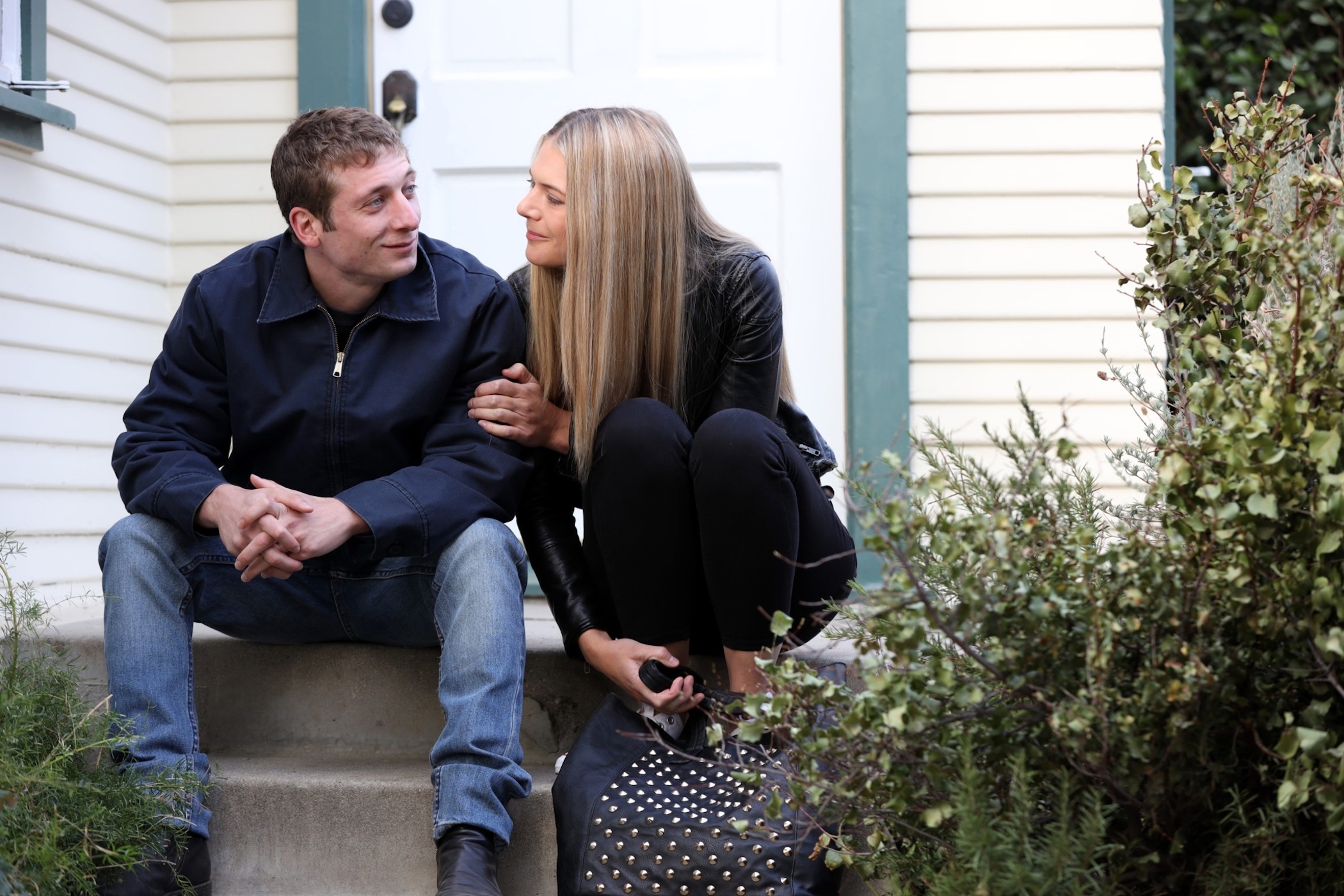Warning: This post contains mentions of emotional and substance abuse.
Relationships can be complicated, especially when you feel like you're at the breaking point. So I asked people in the BuzzFeed Community that were close to divorcing but chose not to, to tell me what happened. Here's what they shared.

For some, it was just a matter of recommitting themselves to one another:
1. "My husband and I had been separated for a few months and were discussing divorce. A friend of mine invited me over along with a mix of single and married women. The single women had all been divorced and spent the time male bashing and telling what I inferred were very one-sided stories about the cause of their divorce. I was completely disgusted by the things they were saying. A few days later, one of the married ladies and I spoke about that evening, and I cried realizing how great of a man I had and told her I didn’t want to be bitter and miserable like them."

2. "Weird but true: A loveseat and texting. My husband and I had been married for 7/8 years at that point. We worked opposite shifts; he worked 1st, and I worked 2nd/3rd because of childcare of our three children under 8. We rarely saw each other, and when we did, we were talking about the kids, the house, or bills. I felt truly alone in my marriage. There was no romance or date nights. We were ships in the night. I was even looking for a lawyer but decided to let him know how I was feeling and why in a long letter."
"About that time, because we were working so much, we could afford to get cellphones and to get a new loveseat. We then began to text throughout our work days about the kids, house, and bills, leaving the little time together we had to just be with each other. [We] made it a point to have a 'date night' on Friday nights after I got off work and the kids were in bed. Sitting in that loveseat watching a movie and cuddling and touching. It saved our marriage. We have been married 23 years now and still happy and as close as ever."
3. "Been married for 14 years. When we got married, we decided right then and there that divorce was not an option. That no matter what came our way, we would stick it out and work through it. We are both extremely stubborn people and also very different from each other except for our religious beliefs. The way we communicate is like two different languages even though we speak English."
"But we keep pressing on and working through it. We apologize and are honest with each other even when it may hurt. And honestly, my opinion on the necessity of love in a marriage has changed too. I now believe that a marriage needs respect even more than it needs love."
4. "A bad vacation destination: We were living our lives together, but very separate: both worked two jobs and had separate hobbies the rest of our free time. A vacation to a hotel in a very deserted spot, with the weather too hot to go outside, made us spend every minute together (this was also before smartphones). It was the best vacation ever. We could not stop talking and fell back in love. Both quit one hobby and one job right after the vacation to have more time together."

5. "Faith in God. It let both of us stop and see each other as He created us and sees us. Then we started to communicate again."
—Anonymous
6. "Agreeing that divorce is not an option. We made a covenant to each other and the peace of mind that comes from knowing your spouse isn’t going to leave brings safety that allows you to honestly and respectfully confront issues. We also both individually put in clear effort for growth and bring in a community of people to hold us accountable in our struggles (anger, blame, etc). And offer each other grace as we grow."
"Neither of us is perfect and we can be patient as we learn to be better. Never underestimate the power of an 'I hear you' response in an argument! Even if you’re angry and don’t feel heard yourself, it will make any argument so much better (more genuine responses, quicker recovery, more bonding, more accountability from both people) if you approach the conversation with the desire to understand your partner's views/hurts first."
—Anonymous
7. "A new home and good therapy. Our marriage was not good, my husband was an addict and hid it from me for years. When he told me, the rage of him not using was taken out on me via gaslighting, blame, just about any kind of emotional abuse you could imagine. I had so much trauma, but I saw the disease. I kicked him out for my own safety until he got the help he needed, but the walls around me told stories, held memories and triggered me. It took him years of therapy to finally become clean and see the monster the addiction created."

8. "We both sought individual therapy. We understand that we each brought baggage into the relationship and it is not the other’s place to sort it. Working on ourselves helps us become open and honest with each other. We respect boundaries, which ironically brought us closer. We gain skills to talk productively about tough issues, such as money and care for our [disabled] child. Our relationship works because we are both willing to work towards being our best selves."
—Anonymous
9. "My therapist said, 'If you feel that [you'd] be able to one day tell your children you tried everything you could to save the marriage, then end it.' I had not done everything I could so I kept working. I did not want my kids to think I just gave up."
—Anonymous
10. "We realized some of the things we felt unfulfilled about weren't really because of our marriage. When it's just you, it's easy to set things aside if you don't like how they are going. Get a job offer in a different city? You can just up and move. Want to adopt a dog? All your choice! When you're married, it's harder to decide to leave a job you dislike, or to move because you want a change. The first year I was married was full of hard adjustments with my work and immigration status, problems that could have been resolved if my husband had been more able/willing to relocate."

11. "Over the course of 15 years, we have broken up once and separated twice. The last time was the closest to divorce we ever got, but each time we separated it always felt horribly wrong. No matter how blind with rage or drowned in sadness I was, it always just felt deeply wrong when we weren't together. With all my past relationships, I never had that feeling before."
"It's what I imagined the closest thing to soulmate must feel like, and every time we separated, it was never from a lack of love. We've been through therapy with varying degrees of success and many different phases of our relationship. What brought us back from the verge of divorce is both of us realizing that it is never our end goal."
—Anonymous
12. "I was always unhappy that I felt she wasn’t really into me and couldn’t/wouldn’t do even the smallest thing I asked her to do. In 2018, I almost left her but chickened out after moving out. Three years after that, mostly thanks to COVID confinement, she got fed up and finally left me. But when I saw how mad she was at me, I suddenly realized she really did care. I told her, 'Tell me the rules, I’ll do what it takes to get this right.' She didn’t expect that but gave us a second chance. I worked my ass off for a year and did really well at not complaining or getting angry, and showing her I could be fun and loving to be around (like at the start)."
"At first, she was only going along thanks to my persistence but expected me to revert after a few months. Then, slowly, her trust and safety returned, and she became much more affectionate, which is what I was looking for. We’re still making repairs but we’ve never been closer. We hope it will continue and look forward to another 20 years or more together. Short version: leaving me but being very upset about it convinced me she actually did love me, and I went all in to win her back. It seems like it’s working so far."
—Anonymous
13. "My husband has a track record of substance abuse issues that have resulted in the only major conflict between us in over a decade of marriage, which is trust. However I knew that when I chose to marry him, thinking those days were behind us. We moved to a big city and our life became exciting. What made me almost want to kick him to the curb was finding out he had lied to me repeatedly about relapsing on alcohol last year. One night, he had bought so much beer to binge he could have died from alcohol poisoning if I hadn't caught him by coming home early. For months, I couldn't trust anything he said and was convinced he must be doing harder drugs as well, leading to a huge fight where we both agreed we were headed for divorce."
"Yet poverty kept us under the same roof, and after that big fight, his behavior changed. He's more affectionate to me, has quit smoking tobacco like he promised (because I couldn't be sure that's ALL he was smoking), has a new AA sponsor, and has even gotten himself a new full-time job that suits him well. I'm also going to get counseling since he's already in individual therapy, so we can both process our feelings about his addictions. I don't want to leave him. He's my best friend, but I also am never going to be played for a fool. So he better be done lying to me about his substances!!!"
—Anonymous
Responses may have been edited for length and clarity.
